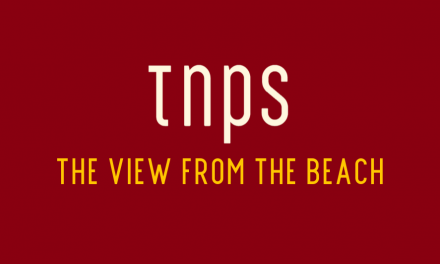“Swing that pendulum back to the 1980s immediately! We can’t have publishers predicting a 75% sales drop because bookstores are closed and then making 60% profits on the back of online sales and ebooks! It’s just not cricket.”
The UK trade journal The Bookseller has been at the forefront of publishing news since time immemorial. Or 1858, which is pretty close in publishing terms.
But the digital transition has been a tough time for a journal steeped in the English gentleman’s world of print publishing, Sunday afternoon cricket and deciding what the masses should be allowed to read.
Until the late 2000s The Bookseller vented most of its anger against online sellers like Amazon, never ever letting the fact that the journal’s title is The Bookseller to get in the way of seeing Amazon, the world’s biggest seller of books, as the enemy.
And never quite ready to spell out that, if Amazon wields enormous power over the UK publishing market, it’s because publishers handed Amazon that power.
Fast forward the 2010s and with the arrival of ebooks in the UK The Bookseller lost no time in dismissing the format and especially self-publishers that dared skip the approval process and offer readers what they might want to read rather than what the gatekeepers thought they should read. “Penny Dreadfuls” was the preferred insult of The Bookseller Editor Philip Jones at the time.
But even in the 2020s The Bookseller’s antipathy towards digital remains, as we see in the latest op-ed from Jones this week, which follows up on his thinly-veiled dismissal of the virtual Frankfurt Book Fair.
TNPS covered the news of Bloomsbury’s online and ebook-driven 60% profit boom, and of course I drew on the positives of the story. TNPS is, after all, focussed on the future of the publishing industry, not on clinging to the past.
But in an op-ed before the weekend The Bookseller was firmly clinging to the past. I’ll let the journal’s Editor Philip Jones take up the story:
Bloomsbury has become something of a bellwether publisher for the sector, being the only big trade publisher releasing regular UK-specific financial reports. When it announced back in April that it was worried that print book sales would drop by 75% during the lockdown, there was a collective gasp; when it later reported that this had not been the case, we all felt a little cheerier. This week it revealed record results—profits in its first half (effectively comprising the period of lockdown and the summer) that it had not seen since 2008, when it was still in the final blush of the Harry Potter series.
Jones goes on,
One should never knock back a good news story,
before doing just that.
First Jones sets the ground:
Notable in the Bloomsbury press release was its affirmation that “online book sales and e-book revenues were significantly higher”—hardly surprising, for half the financial period bookshops were Covid-closed.
Nevertheless, online book sales were already set to take up a bigger slice of the pie, and the lockdown will only have accentuated that trend. As Blackwell’s digital director Kieron Smith wrote this week, Enders Analysis has estimated that there were four years of e-commerce acceleration within the first three months of lockdown. “People are not going back to the high street any time soon, and when they do their buying habits will inevitably include a heavier mix of e-commerce.”
For Bloomsbury, it means that more that 30% of its business is now from digital content sales (including from within its academic division, where e-book adoption also accelerated), compared with 19% in its past full-year period.
So far so good, but then Jones spells out his position:
I do not know what the change towards online sales away from bookshop business has been, but according to publishers I’ve spoken to the swing has not yet corrected itself.
Wait, what? “Not yet corrected itself”?
Memo to Philip Jones: This is the book market, not the stock market. But in the mindset of The Bookseller’s illustrious Editor, profit from (cue dramatic music to indicate foreboding) digital is an aberration in desperate need of correction.
Swing that pendulum back to the 1980s immediately! We can’t have publishers predicting a 75% sales drop because bookstores are closed and then making 60% profits on the back of online sales and ebooks! It’s just not cricket.
Jones doesn’t leave it at that. He continues:
There is an upside: where there are readers there is hope.
Wait, what? (Redux)
So not only is Jones dismissing the 60% profit of Bloomsbury as a negative swing that needs correcting, but he is also dismissing digital-buying consumers.
A book buyer is only a reader, it seems, if they tootle off to the local bookstore and come out with a printed book under their arm. All those readers who bought Bloomsbury books online or in digital format sending Bloomsbury profits through the roof are just, well, whatever the reader-equivalent of a Penny Dreadful is.
The titles of The Bookseller post? “Irrational numbers.”






I don’t really see the problem here. The Bookseller is a trade journal, and a large part of its audience are people who work in bookshops. For them, it is not good news if huge numbers of their customers migrate to online sales or ebooks, as they could end up out of business. However, the fact that their readers are still reading IS an upside as they may return to print (and therefore bookshops) once the pandemic is over, as opposed to migrating to other forms of entertainment altogether.